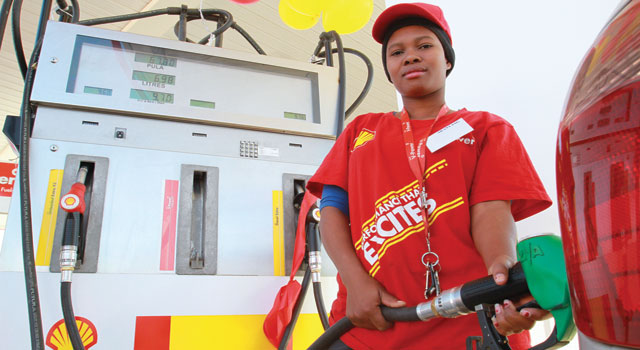The managing director of Vivo energy, Wayne Kingwill has revealed that his company has the responsibility of providing government with factual data regarding market trends to enable it to set reasonable fuel prices that are reflective of true market conditions. Government is singularly responsible for setting national fuel prices. A reasonable and transparent price build up plays an important role in the operations of an energy business. Kingwill explained that a price build up is based on assumed landed costs. Landed costs refers to the total costs of a shipped product, which include the purchase price, freight, insurance and any other costs up to the port destination.
“Challenges arise when a business is not able to get the product at the assumed landed cost. It is therefore important to continually look at ways that optimize the supply chain. In this sense, cost recovery is a critical component of any energy business ,” he said.
Kingwill added that Vivo Energy is committed to working with government to establish a robust and suitable pricing framework. Parliament is yet to approve the Energy Bill which is expected to inform the regulatory framework of the energy sector. The recently launched state oil company, Botswana Oil, is tasked with the responsibility of transforming the national oil industry and ensuring efficiency of the country’s national fuel supply. The company will also source fuel and lubricants on behalf of government to distribute to the local market.
As a growing economy, Botswana consumes substantial amounts of fuel. The mining sector, as a driver of the national economy also consumes large amounts of fuel. Orapa and Jwaneng mines consume about 1.3 million litres of diesel per month. The emergency power plant in in Orapa, which comprises of two 45 MW open cycle gas turbines, consumes an average of 22,000 litres of diesel per hour at full capacity. It is therefore abundantly clear that petroleum products are important inputs for mineral production and power generation.
The 2013 Botswana International Merchandise Trade Statistics reveal that the country has been experiencing an upward fuel trend from 2009 to 2013. In November 2013 fuel contributed 15.6 percent to total imports, which by import composition is the largest share followed by machinery and electrical equipment at 14.9 percent. The country does not have fuel resources and therefore imports the finished product from the international market, especially South Africa. Botswana is currently identifying the best approaches towards establishing it own fuel supplies. These include the burning of coal into liquid, given Botswana’s abundant coal resources.
Gazette Business interviewed Kingwill at the launch of Vivo Energy Botswana’s first brand Ambassador, Phenyo Moroka last week.
Moroka is the co-host of Yarona FM’s morning show “Flight 6 to 10.” Moroka told Gazette Business that his role will essentially be to communicate the company’s message to consumers either at events or through social media. He added that the relationship agreement is expected to last for a period of 12 months with an option to extend based on his performance. Vivo Energy Botswana is an energy business that sources, distributes and supplies fuels and lubricants across the continent. The company has the widest market network of 82 service stations serving both motorists and businesses. It is currently developing opportunities around mining and tourism industries as well as in the commercial sector.

